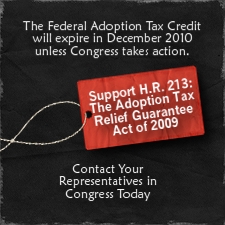2009 is the Year of the Ox, which is also known by its formal name of Ji Chou. January 26, 2009 is the first day of the Chinese new year, which marks the beginning of the
Spring Festival.
The origins of the Chinese New Year celebrations were born out of fear and myth. Legend spoke of the wild beast Nien (which also is the word for "year") who appeared at the end of each year, attacking and killing villagers. To scare the beast away, loud noises and bright lights were used and thus the Chinese New Year celebrations were born.
Chinese New Year is a 15-day celebration and each day, many families rotate celebrations between homes of their relatives. The Chinese New Year's Eve meal is the most important dinner of the year. Typically, families gather at a designated relative's house for dinner, but these days, many families often celebrate New Year's Eve dinner at a restaurant. Many restaurants require reservations months in advance. The festivies are day-long and sometimes, a family ends up cooking two meals for their relatives, once at lunch and once at dinner. These dishes used to be all made from scratch, but now people can easily buy them prepackaged at the supermarkets.
Today, the 15-day New Year festivities, or Spring Festival, are celebrated with a week of vacation in metropolitan areas of China. Much like the Western New Year (January 1st), the biggest celebration is on the eve of the holiday. At the turn of the new year, fireworks cover the city.
I found most of this info at www.thehistorychannel.com/content.chinesenewyear there are some videos there which are pretty interesting. Find below a few more fun facts I gleaned from the web.
SYMBOLSRed envelopesCalled "hong bao" in Mandarin, the red envelopes filled with money are typically only given to children or unmarried adults with no job. If you're single and working and making money, you still have to give the younger ones the hong bao money. The color red denotes good luck/fortune and happiness/abundance in the Chinese Culture and is often worn or used for decoration in other celebrations.
DragonThe Dragon is present in many Chinese cultural celebrations as the Chinese people often think of themselves as descendants of the mythical creature. On the fifth day of the New Year when many people have to start going back to work, they will also have the Dancing Dragons perform in the front of the office building. On the 15th day of the New Year (Yuan Xiao Jie) or the Festival of Lanterns, they will also have a lot of dancing dragon performances. The dragon represents prosperity, good luck and good fortune.
I am not sure if and how we will celebrate Chinese New Year's Eve or the rest of Spring Festival this year, but this will be a part of us in the same way we buy 'banket' at the Elim Dutch Festival and have roast beef and potatoes and gravy for Sunday dinners. Dumplings anyone? By the way, we all love Chinese food, anywhere from Panda Express to our local open kitchen Chop Suey House, so devoting a whole day to cooking and eating it does not present a problem to this family. However, the traditional cleaning the house (sweeping out the bad) from top to bottom has me thinking that we could Kuiperize our celebrations. Also, you can't sweep (clean) too soon after either because you don't want to sweep out the Good Luck. That part I do not have a problem with!
Deb






